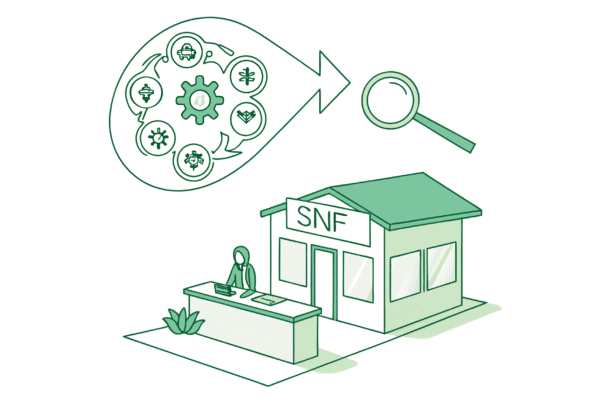The market for physical therapy in St. Louis is growing, and for many practice owners, this presents a significant opportunity. Deciding to sell your practice is a major milestone, involving more than just a final number on a page. It’s about securing your financial future and ensuring your legacy of patient care continues. Navigating this process requires a clear understanding of your practice’s value and the steps needed to achieve a premium outcome. This guide will walk you through the key areas to consider.
St. Louis Physical Therapy: A Seller’s Market
If you own a physical therapy practice in St. Louis, you are in a strong position. The market is not just stable; it’s expanding. This creates a favorable environment for practice owners who are thinking about their next chapter.
State-Level Growth
The demand for physical therapy services across Missouri is on a clear upward trend. The industry is projected to reach nearly $1 billion by 2025, supported by a 20% projected growth in physical therapist jobs over the next decade. This isn’t a minor shift. It is a fundamental increase in demand for the services you provide.
Local Strength in St. Louis
St. Louis County is a hub for this growth, holding a large share of the state’s physical therapy practices. The area benefits from a robust and relatively young workforce, with over half of Missouri’s licensed PTs and PTAs under the age of 45. For a potential buyer, this signals a healthy talent pool and long-term stability for the practice they acquire.
What Buyers Look For in Your Practice
Beyond the positive market trends, a buyer’s interest truly depends on the inner workings of your specific practice. Two clinics can have identical revenues but receive very different offers. Why? The answer often comes down to how much the practice depends on you, the owner.
Imagine a practice where you handle all the key physician relationships, manage complicated scheduling, and are the primary treating therapist for a majority of patients. Now, imagine another practice where a clinic director manages operations, a documented system handles referrals, and a stable team of therapists manages the caseload. A buyer sees the second practice as a much safer investment. They are buying a business, not just your job. Reducing owner dependence and cultivating a stable, experienced team are two of the most powerful things you can do to build real, transferable value.
3 Buyer Trends Shaping the St. Louis PT Market
The buyers interested in St. Louis physical therapy practices are not a single group. They come with different goals and resources, which affects the type of offer you might receive. Understanding who is in the market helps you position your practice effectively.
-
The Individual Therapist. Often an ambitious PT looking to own their own clinic, this buyer wants a turnkey operation with a solid patient base. They may have limited capital and could be a good fit for a practice where the owner is willing to help with the transition.
-
The Strategic Healthcare Group. This could be a local hospital system or a larger regional therapy group looking to expand its footprint in St. Louis. They are seeking synergy and market share. They often pay competitive prices for practices in prime locations or with specialized services that fill a gap in their offerings.
-
The Private Equity (PE) Firm. PE buyers are focused on growth and scalability. They look for practices with strong, predictable cash flow (EBITDA), a proven management team (not just the owner), and robust operational systems. For the right practice, a PE firm can represent the highest valuation opportunity.
The Path to a Successful Sale
Selling a practice isn’t a single event. It is a process with distinct stages, each requiring careful attention. It typically begins long before your practice is shown to a potential buyer. The first step is organizing your financial records and operational procedures to present the business in the best possible light. This is followed by a comprehensive valuation to set a realistic and defensible asking price.
Once prepared, the marketing phase begins, where your practice is confidentially presented to a curated group of qualified buyers. This generates interest and leads to negotiations on price and terms. The most critical phase is often due diligence, where the buyer scrutinizes every aspect of your business, from billing compliance to employee contracts. Many deals encounter unexpected problems here. A smooth due diligence process is the key to reaching the final step: closing the sale and transitioning the practice to its new owner.
What Is Your St. Louis Practice Really Worth?
Determining your practice’s value is more than just looking at annual revenue. Sophisticated buyers look deeper, focusing on a metric called Adjusted EBITDA. This is your practice’s profit before interest, taxes, depreciation, and amortization, with “add-backs” for owner-specific expenses like an above-market salary or a personal car lease. This adjusted profit is then multiplied by a number (a “multiple”) to arrive at a valuation.
That multiple isn’t fixed. It changes based on the quality and risk profile of your practice. A practice that is well-managed and poised for growth will command a higher multiple than one that is heavily reliant on its current owner.
| Factor | Lower Valuation Multiple | Higher Valuation Multiple |
|---|---|---|
| Owner Involvement | Practice depends on owner for all key functions. | Owner has delegated to a clinic director/team. |
| Staffing | High turnover; difficult to find new therapists. | Stable, experienced team of licensed therapists. |
| Operations | Outdated systems, manual scheduling & billing. | Modern software for EMR and practice management. |
| Referrals | Relies on one or two key physician relationships. | Diverse network of referral sources. |
Getting an accurate valuation is the foundation of a successful exit strategy.
Planning for Life After the Sale
The day you close the sale is not the end of the journey. It is the beginning of a transition. How you manage this period is critical for the continued success of the practice and for your own peace of mind. You will need a clear plan for communicating the change to your staff and patients to ensure a smooth handover.
You also need to consider your own role. Will you be leaving immediately, or staying on for a period to help the new owner? This is often a key point of negotiation. Structuring this involvement correctly can protect your legacy and the culture you built. Finally, the structure of the sale itself has major implications for your after-tax proceeds. Thinking about this early, rather than after the fact, can significantly impact your net financial outcome. Planning for these post-sale realities is just as important as negotiating the price.
Frequently Asked Questions
What makes St. Louis a good market for selling a physical therapy practice?
St. Louis is a strong and expanding market for physical therapy, with a growing demand supported by state-level growth projections and a robust, young workforce. This creates favorable conditions and a positive environment for practice owners looking to sell.
What factors do buyers consider when evaluating a physical therapy practice in St. Louis?
Buyers look beyond revenue and consider how dependent the practice is on the owner. Practices with delegated management, documented systems, and a stable team are more attractive because they represent a transferable business rather than just the owner’s job.
Who are the typical buyers interested in St. Louis physical therapy practices?
The buyers typically include individual therapists looking to own a clinic, strategic healthcare groups like local hospitals seeking market expansion, and private equity firms focused on scalable growth with strong cash flow and management teams.
How is the value of a physical therapy practice in St. Louis determined?
Valuation is based on Adjusted EBITDA, which is the profit before interest, taxes, depreciation, and amortization, adjusted for owner-specific expenses. This figure is then multiplied by a multiple that varies depending on practice quality factors such as owner involvement, staffing stability, and operational systems.
What should owners plan for after selling their physical therapy practice in St. Louis?
Owners should prepare for a smooth transition by planning communication with staff and patients, deciding their post-sale role, and structuring the sale with tax implications in mind. This planning protects the practice’s legacy, culture, and ensures financial outcomes are optimized.



